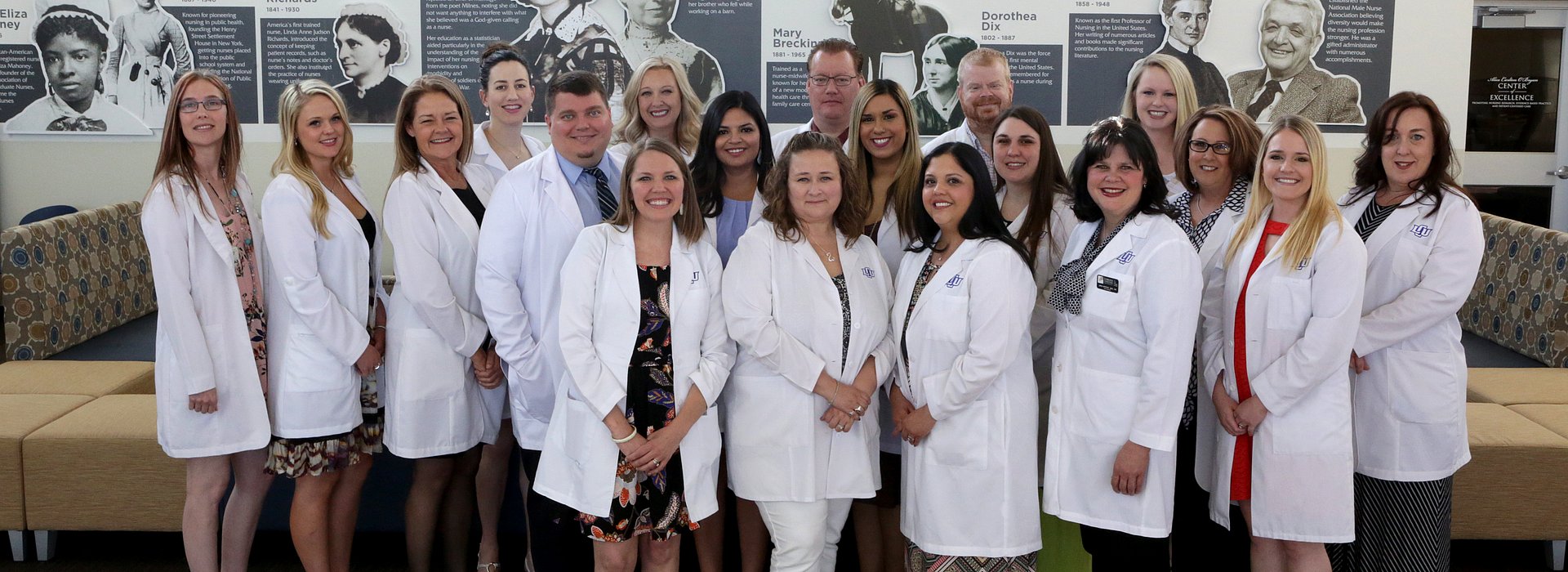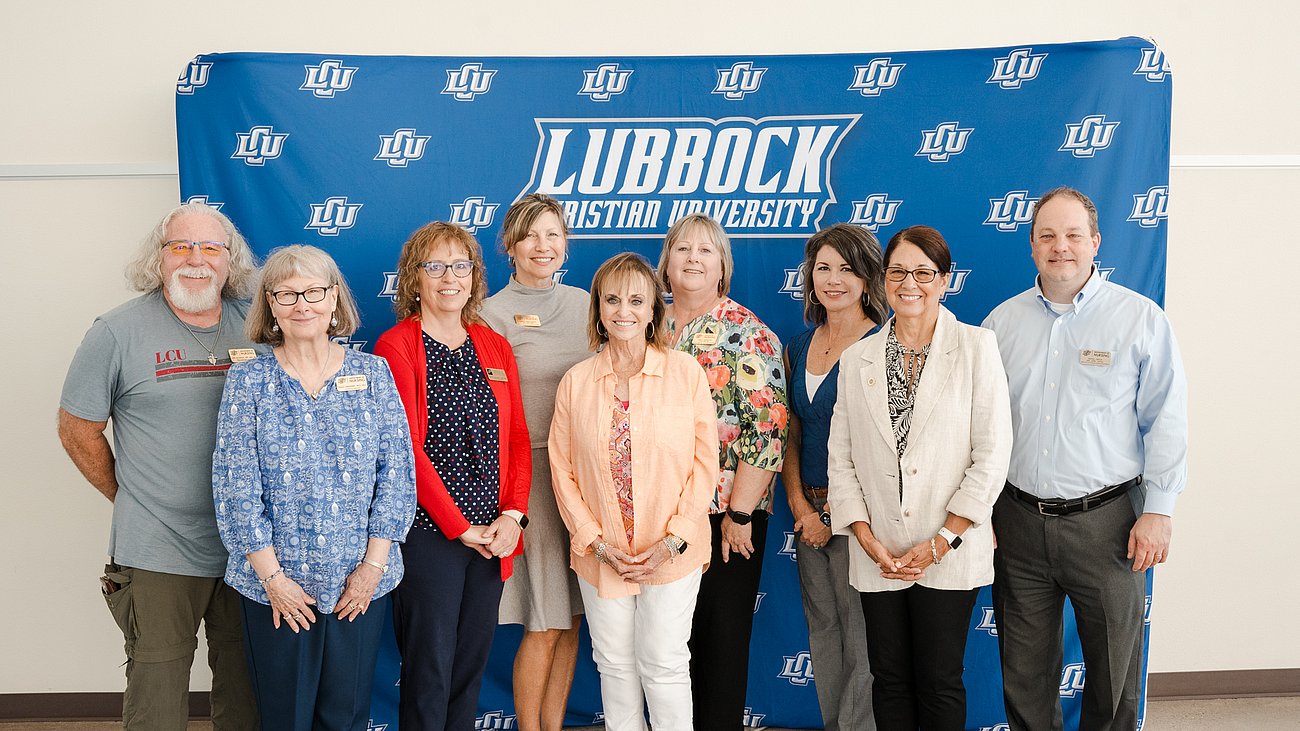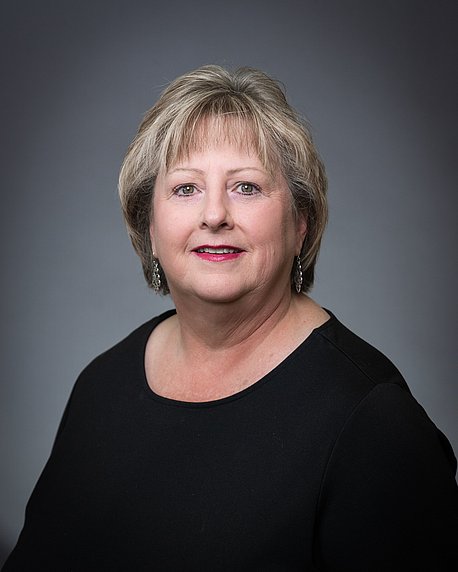
Degree
Credit Hours
Years
Format
Starting Dates
Request Info
This is a 35-hour, non-thesis Master of Science in Nursing (MSN) with a blended leadership and education focus. Graduates from the program will be qualified to find employment in nursing education and leadership in a variety of hospital, community-based, and health care settings. A combination of innovative methods will be used to deliver the curriculum. Courses are offered multiple times throughout the year in a hybrid format. The program accommodates the schedules of most working nurses.
Graduates who meet work experience and continuing education requirements are prepared for optional national certifications through American Nursing Credentialing Commission, National League for Nursing, American Organization of Nurse Executives or American Association of Critical Care Nurses.

2022
- Employment upon graduation: 100%
- Program Completion rates: 95%
2023
- Employment upon graduation: 100%
- Program Completion rates: 100%
2024
- Employment upon graduation: 100%
- Program Completion rates: 98%
43% of nursing leadership roles at UMC Health System and 55% of nursing leadership roles at Covenant Health System are held by alumni of LCU’s nursing program
- Completed application
- A non-refundable $60 Application Fee
- BSN or acceptable baccalaureate degree as determined by the University
- RN licensure
- LCU Credit Agreement
- Official transcripts of all previous university work, including nursing school
- Favorable letter of reference from professional contact
- Favorable letter of reference from personal or academic contact
- Completed criminal background check
- GPA of at least 3.0 on a baccalaureate degree or cumulative GPA of at least 3.0 for the last 60 hours of baccalaureate studies. Graduate transfer applicants must have a cumulative GPA of at least 3.0 in twelve or more graduate hours in a discipline relevant to the graduate program for which the applicant is seeking admission.
- Applicants not meeting the above GPA requirements who have at least a 2.5 cumulative GPA in their baccalaureate studies may request consideration for unconditional admission if an official exam score report is submitted. Applicants must have scored at least 800 on the Graduate Record Examination (GRE) taken before August 1, 2011; 286 on the Revised Graduate Record Examination (GRE) taken after August 1, 2011; or at least 400 on the Miller Analogy Test (MAT). MSN-FNP track will not accept applicants with a cumulative GPA of less than 3.0 for the last 60 hours of baccalaureate studies.
Complete and return the documents to the Department of Nursing at your earliest convenience. All requirements for the master's program must be met before students will be admitted to the program.
Important: Send in items as you get them. Do not wait until you complete everything.
Upon acceptance to the program and prior to enrollment in courses, please note these additional requirements:
- Student liability insurance is purchased by the Department of Nursing at group rates. A fee is assessed to cover the cost.
- Criminal background checks are required prior to enrollment.
- Students need a current passport for enrollment in NUR 5306 Global and Cultural Health.
Thank you for considering the MSN program at LCU!
If you have any questions, concerns or comments, please contact us through phone.
- Completed application (select “non-degree seeking”)
- A non-refundable $60 Application Fee
- MSN degree from an accredited university
- RN licensure
- LCU Credit Agreement
- Official transcripts of all previous university work, including nursing school
- Favorable letter of reference from professional contact
- Favorable letter of reference from personal or academic contact
- Completed criminal background check
- GPA of at least 3.0 in Graduate studies.
Complete and return the documents to the Department of Nursing at your earliest convenience. All requirements for the Post Graduate courses must be met before students will be admitted.
Important: Send in items as you get them. Do not wait until you complete everything.
Upon acceptance and prior to enrollment in courses, please note these additional requirements:
- Student liability insurance is purchased by the Department of Nursing at group rates. A fee is assessed to cover the cost.
- Criminal background checks are required prior to enrollment.
NOTE: Students wishing to take Post Graduate courses will not be eligible for financial aid
Provides an orientation and introduction to graduate level study. A focus on electronic database searching and utilization of community-wide library resources, APA style and introduction to writing for publication, accessing and utilizing technology for online courses, and the professional portfolio will be initiated in this course. To be taken the semester of entry to the program.
Teaching and learning principles and theories of adult learning and educational processes provide the foundation for this course. Scholarly inquiry into multiple dimensions of the role of professional educator and leader are examined. The management of educational activities, staff development, curriculum planning, design, and evaluation, and the facilitation of learning in a variety of settings are addressed.
This courses focuses on providing the student with the practical skills to translate practice problems into researchable questions. Examination of quantitative and qualitative research methods, data collection, selection of measurements, and statistical analyses are considered. Students will develop a research proposal from significances to determination of the research plan.
Study of theoretical and practical characteristics of technology integration strategies, including using instructional software, using technology media, and integrating technology into the curriculum or practice environment in the role of nurse educator or leader are explored.
Economic and resource management, financial planning and budgeting, reimbursement systems in health care, cost containment, spreadsheets and human resource management for the nurse in an advanced role of educator or leader/administrator across health care settings comprise the focus of this course.
Examines historical and contemporary theoretical bases for advanced nursing practice. Analysis of selected models and theories from nursing and other disciplines are considered in the context of traditional, alternative, and complementary approaches to health promotion, disease prevention, and human responses to illness at the level of individual, family, and community. The concepts of person, health, environment, spirituality, and nursing are explored.
Travel to a selected country to experience the spiritual dimension of health care delivery, nursing education, and the role of nurses in a culturally diverse setting. The course offers a transcultural experience outside the U.S. Learning takes place through observation, experience, interaction, and critical thinking via on site visits and by reviewing current nursing and general literature. The course is designed to enhance the development of critical thinking and communication skills at on-site locations. University faculty and resource persons in the selected country will make arrangements for the desired experiences. Ninety practicum hours.
Examines applications of research-based practices to policy and nursing care decisions and delivery at the organizational, community, state, and national level. Research applications of solving practical organizational and system problems, quality and outcome indicators, reducing medical errors to produce a safer health care system with a major emphasis on community is the focus of this course. Students will propose a grant or quality improvement plan to improve a practice issue in the workplace. Ninety practicum hours.
Travel to a selected country to experience the spiritual dimension of health care delivery, nursing education, and the role of nurses in a culturally diverse setting. The course offers a transcultural experience outside the U.S. Learning takes place through observation, experience, interaction, and critical thinking via on site visits and by reviewing current nursing and general literature. The course is designed to enhance the development of critical thinking and communication skills at on-site locations. University faculty and resource persons in the selected country will make arrangements for the desired experiences. Ninety practicum hours.
Focuses on the analysis, application, and integration of 21st century leadership and management skills into the behavior of the nurse in the role of educator and leader. Practical organizational and problem-solving skills, resource management and development, collaboration, team building, and effective communication are emphasized.
5310 Education/Leadership Practicum. Application of program course work occurs in this capstone course in which students participate in field experience with a preceptor where they practice in the advanced role of nursing educator and leader in a selected field experience. Within the didactic sessions for this course, particular attention is given to the discussion of Best Practices in Education and Leadership. The course culminates in the presentation of the professional portfolio. Ninety practicum hours.
Examines the professional, ethical, legal, political, and social dimensions of developing an identity as an advanced practice nurse within the context of nursing practice, institutional, and community environments. Issues of health disparity, cultural diversity, and the health needs of underserved populations are examined. Further areas of consideration will include professional standards and certification, code of ethics, bioethical issues, confidentiality, plagiarism, and liability, regulatory, and collective bargaining considerations.
Overview of advanced concepts related to normal and abnormal body functioning. The primary focus is on in-depth and current understanding of disease processes across the lifespan integrating risk factors for disease in various populations.
Focuses on the clinical application of pharmacology needed in the provision of advanced practice nursing. The emphasis is on drugs commonly used in the family practice of ambulatory primary health care setting for the treatment of acute and chronic disease, and on the integration of drug therapy as one component of therapeutic management plans. The application of the principles of pharmacodynamics and pharmacokinetics to clinical use of drugs will be explored, including therapeutic dosage patterns, side effects, drug interactions, contraindications.

Visit the University Catalog here to view the Nursing degree plan.